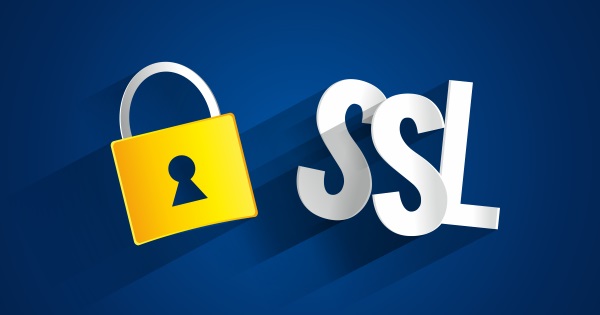Website security can be a complicated and expensive endeavor. Companies must ensure their websites are secure from malicious attacks and prevent data breaches. Because of the serious risks businesses face in the digital landscape, organizations must use all security protocols, from a digital certificate to a strong password. One of the most important and widely used security protocols is Secure Socket Layer (SSL) / Transport Layer Security (TLS).
What Are SSL/TLS Certificates
SSL/TLS certificates are small data files that enable secure communication between web browsers and servers. They provide a layer of encryption for data traveling over the internet, making it much harder for malicious actors to access sensitive information. SSL/TLS certificates also provide a layer of authentication, allowing websites to verify their identity and prove they are who they claim to be.
Certificates are issued by Certificate Authorities (CAs), third-party organizations that validate the identity of those requesting them. Verifying a website’s owner’s identity, CAs assure users they are on a secure and trusted site. CAs also issue certificates with different levels of security, such as Extended Validation (EV) certificates that require more detailed identity authentication.
How Certificates Are Used
Web browsers use SSL/TLS certificates to verify a website’s authenticity and encrypt data transmissions. When a user attempts to access a site, their browser will communicate with the server hosting the site and request the SSL/TLS certificate. The server then sends over its certificate, which includes details about its ownership and validity. The browser checks the information against a list of trusted CAs to verify the certificate and its owner. Once the identity is confirmed, data is encrypted, and an encrypted connection is established between the user’s browser and the website’s server.
Certificates also authenticate websites and protect users’ personal information. When users enter sensitive data, such as credit card numbers or passwords, the website’s SSL/TLS certificate ensures that this information is sent securely and not intercepted by malicious actors.
Best Security Practices With Certificates
Companies should strive to use the best security practices with SSL/TLS certificates. It includes using robust encryption algorithms and avoiding out-of-date and weak protocols. Additionally, websites should deploy multi-domain and wildcard certificates whenever possible. These enable companies to secure multiple subdomains on their website without obtaining separate certificates.
Website owners should also be aware of the different types of certificates available and select one that best meets their needs. EV certificates provide the most robust authentication, while Domain Validated (DV) certificates are less secure but cost-effective. Organizations must also keep their certifications up to date by renewing them regularly.
Companies should also implement a digital certificate with other security protocols to ensure optimal protection. For example, websites should use strong passwords and two-factor authentication in addition to SSL/TLS certificates.
The Future of SSL/TLS Certificates
Website security will become even more critical as the world shifts to a digital economy. SSL/TLS certificates are expected to increase as businesses strive for greater website protection and heightened security standards.
In addition, Certificate Authorities are developing new technologies that will make it easier for organizations to manage their certificates and keep’ websites secure. Management includes automated certificate management systems that help organizations quickly deploy, renew, and revoke certificates.
SSL/TLS certificates are a critical component of website security and will continue to play an essential role in the digital landscape. By following best security practices with SSL/TLS certificates, companies can ensure their websites are secure and trusted by visitors.
Final Thoughts
With heightened security threats and the increasing prevalence of online transactions, website security is more important than ever. SSL/TLS certificates provide an essential layer of protection by encrypting data transmissions over the internet, making it much harder for malicious actors to access sensitive information. By following best security practices with SSL/TLS certificates, companies can ensure their websites are secure and trusted by visitors. This will help create a safe online environment and foster trust between businesses and customers.

Thomas Jackson is a dynamic and talented content writer at WonderWorldSpace.com, renowned for his engaging and informative articles. Beyond his professional pursuits in writing, Jack is also known for his deep passion for fitness, which not only shapes his lifestyle but also influences his work.


